Is it possible not to gain weight during pregnancy
No Weight Gain for Obese Women?
Study Suggests No Pregnancy Weight Gain for Obese Women Who Get Nutritional Guidance
Written by Miranda Hitti
June 2, 2009 -- Women who are obese when they become pregnant may not need to gain weight during pregnancy, as long as they and their doctors focus on healthy eating, a new study shows.
"The take-home message is that you can eat well during your pregnancy without overeating, and pregnancy should not be a license to overeat, and pregnancy should not be a contributing factor to the epidemic of obesity in this country," researcher Yvonne S. Thornton, MD, MPH, tells WebMD.
Thornton's findings, published in the June edition of the Journal of the National Medical Association, go further than the Institute of Medicine (IOM) did in its new guidelines for pregnancy weight.
The IOM recommends that obese women gain 11-20 pounds during pregnancy. Thornton's team argues that obese women may have healthy pregnancies maintaining their weight, provided they have professional nutritional guidance -- and accountability about what they eat.
Pregnancy "is not a time to eat twice as much, but twice as well," Thornton says.
Pregnancy Weight Study
Thornton's study included 232 New York state women who were obese when they got pregnant. The women's BMI (body mass index) ranged from 30 to 69, averaging in the upper 30s.
All of the women got information about nutrition during pregnancy. Half of the women also got a personalized healthy eating program and kept food diaries, which were reviewed at each prenatal checkup. For comparison, the other half of the group didn't get eating plans and didn't keep food diaries.
Thornton says she deliberately didn't use the word "diet" because she considers it "an emotionally charged word" and because the study wasn't about losing weight during pregnancy.
"We're not saying that pregnant women should lose weight. We're not advocating that," Thornton says. "We're saying, 'Forget about the pounds, already ... Let's talk about eating well and whatever happens, happens.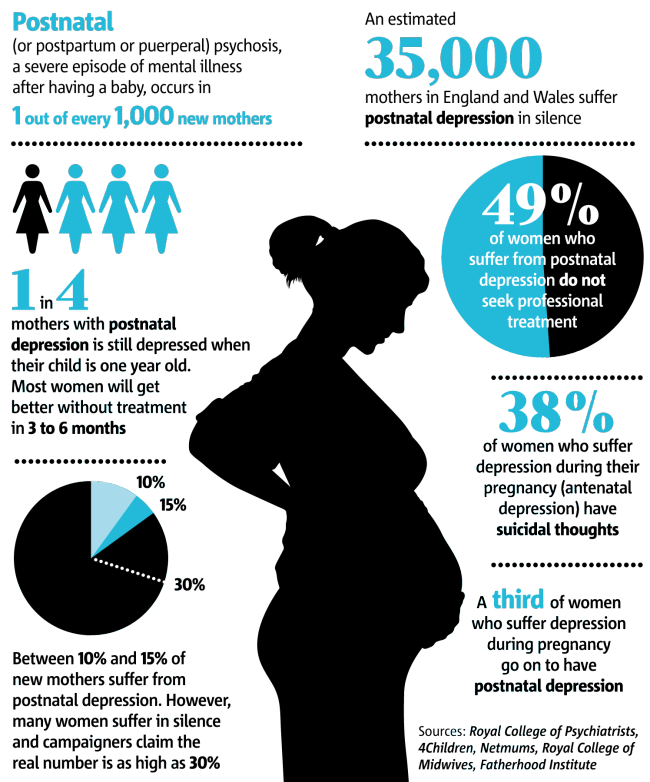 '"
'"
Thornton likens the food diary reviews to monitoring drivers' speed.
"If it says 55 miles an hour, you know most of us don't go 55 miles an hour. But if there's a police officer there, we're going 55 miles an hour. And that's the same thing with my study."
For instance, Thornton says a patient told her that she was craving chocolate cake but decided to get fruit instead because she knew she would have to write it down.
Thornton has been in her patients' shoes. Read about her own pregnancy weight experiences, which inspired this study, in WebMD's news blog.
Obesity and Pregnancy: Study's Results
Overall, women who gained less than 15 pounds during the pregnancy were more likely to be in the group that kept the food diaries than in the comparison group, and they were less likely to develop gestational diabetes, preeclampsia, undergo cesarean section, or have labor induced.
The women who got personalized nutritional advice and who were asked to keep food diaries gained an average of 11 pounds during their pregnancies.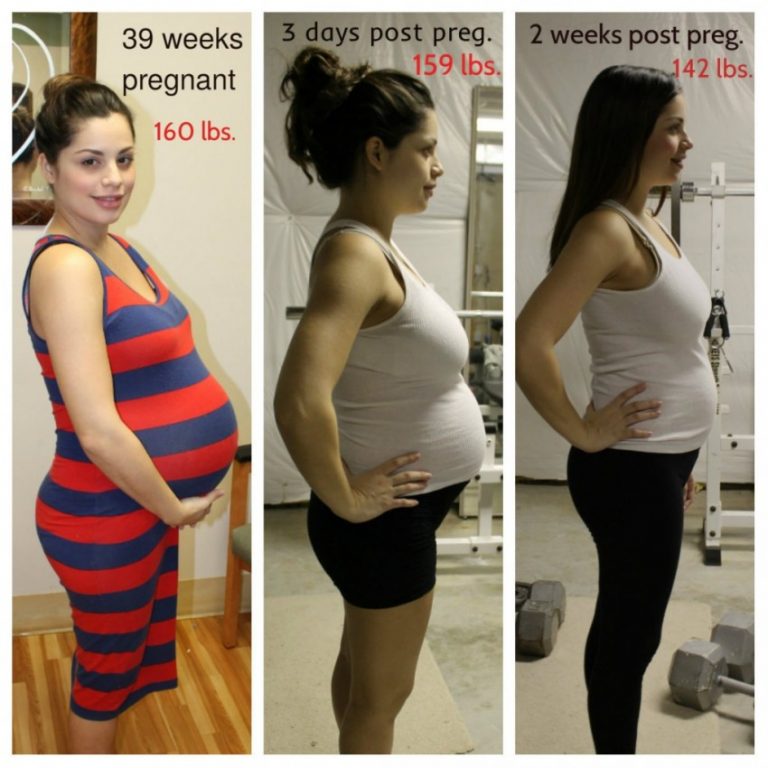 Women in the comparison group gained an average of 31 pounds.
Women in the comparison group gained an average of 31 pounds.
Most of the pregnant women who got personalized nutritional advice and who kept food diaries -- 90 out of 116 women -- followed the study's ground rules. They gained even less weight -- an average of 5 pounds during their pregnancies.
In contrast, women who didn't stick to their personalized eating programs and didn't turn in their food diaries gained more weight -- 31 pounds, on average, which is as much as women in the comparison group.
No side effects were reported during the study, and the babies were born healthy and at a normal weight. "They were not little peanuts," Thornton says.
Obesity and Pregnancy: Don't Obsess
Thornton's study was "very interesting and timely work ... an admirable research effort," Bill Barth Jr., MD, tells WebMD. Barth is an associate professor at Harvard Medical School and chief of the division of maternal-fetal medicine at Massachusetts General Hospital.
"The study, if it's confirmed by larger studies, suggests that women who have a body mass index over 30 may not need to gain weight at all if in a supervised program," Barth says.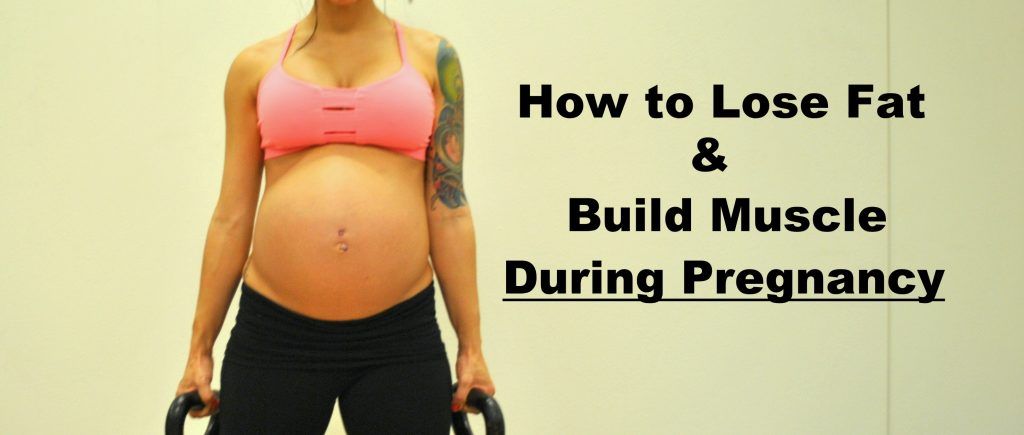 "Ideally, this would be covered by a clinical nutritionist or a nurse or a physician with special training and experience in dietary counseling."
"Ideally, this would be covered by a clinical nutritionist or a nurse or a physician with special training and experience in dietary counseling."
Michelle Owens, MD, assistant professor of maternal-fetal medicine at the University of Mississippi Medical Center in Jackson, Miss., has had many obese patients who've gotten pregnant.
Praising Thornton's study, Owens says people tend to "obsess" about how much weight they should gain during pregnancy.
"But in actuality, those numbers are firmly rooted in basic behavioral and nutritional habits," Owens says. "I think that that needs to be cornerstone, rather than obsessing over the number, because you can still make a significant impact without necessarily meeting a numeric goal."
Pregnancy can be an ideal time to move toward healthier eating, Owens notes.
"I think a lot of times with pregnant ladies, you can motivate someone to do things for themselves during pregnancy that you ordinarily might not be able to motivate them to do, because it's not just about them but it's also about the outcomes for their babies, as well. "
"
Managing your weight gain during pregnancy: MedlinePlus Medical Encyclopedia
Most women should gain somewhere between 25 and 35 pounds (11.5 to 16 kilograms) during pregnancy. Most will gain 2 to 4 pounds (1 to 2 kilograms) during the first trimester, and then 1 pound (0.5 kilogram) a week for the rest of the pregnancy. The amount of weight gain depends on your situation.
- Overweight women need to gain less (15 to 25 pounds or 7 to 11 kilograms or less, depending on their pre-pregnancy weight).
- Underweight women will need to gain more (28 to 40 pounds or 13 to 18 kilograms).
- You should gain more weight if you are having more than 1 baby. Women having twins need to gain 37 to 54 pounds (16.5 to 24.5 kilograms).
A balanced, nutrient-rich diet, along with exercise, is the basis for a healthy pregnancy. For most pregnant women, the right amount of calories is:
- 1,800 calories per day in the 1st trimester
- 2,200 calories per day in the 2nd trimester
- 2,400 calories per day in the 3rd trimester
Much of the weight that you gain during pregnancy is not fat, but is related to the baby. Here is a breakdown of how 35 pounds (16 kilograms) adds up:
Here is a breakdown of how 35 pounds (16 kilograms) adds up:
- Baby: 8 pounds (3.5 kilograms)
- Placenta: 2 to 3 pounds (1 to 1.5 kilograms)
- Amniotic fluid: 2 to 3 pounds (1 to 1.5 kilograms)
- Breast tissue: 2 to 3 pounds (1 to 1.5 kilograms)
- Blood supply: 4 pounds (2 kilograms)
- Fat stores: 5 to 9 pounds (2.5 to 4 kilograms)
- Uterus growth: 2 to 5 pounds (1 to 2.5 kilograms)
Some women are already overweight when they get pregnant. Other women gain weight too quickly during their pregnancy. Either way, a pregnant woman should not go on a diet or try to lose weight during pregnancy.
It is better to focus on eating the right foods and staying active. If you do not gain enough weight during pregnancy, you and your baby may have problems.
Still, you can make changes in your diet to get the nutrients you need without gaining too much weight. Talk to your health care provider to get help with planning a healthy diet.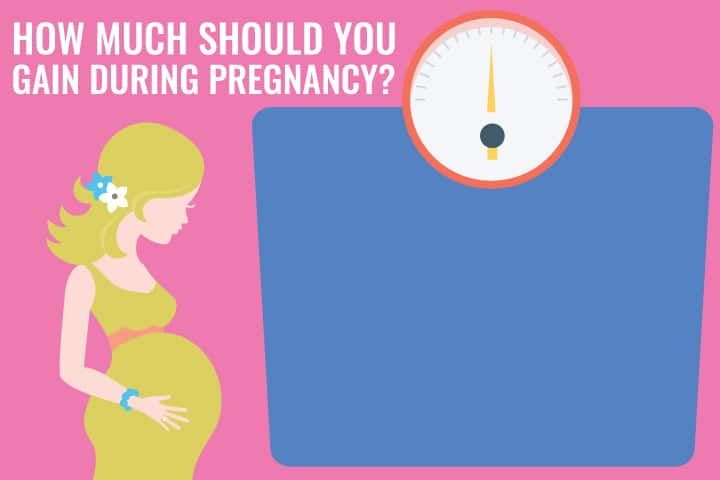
Below are some healthy eating tips to help you get started.
Healthy choices:
- Fresh fruits and vegetables make good snacks. They are full of vitamins and low in calories and fat.
- Eat breads, crackers, and cereals made with whole grains.
- Choose reduced-fat dairy products. You need at least 4 servings of milk products every day. However, using skim, 1%, or 2% milk will greatly reduce the amount of calories and fat you eat. Also choose low-fat or fat-free cheese or yogurt.
Foods to avoid:
- Naturally sweetened is better than foods and drinks with added sugar or artificial sweeteners.
- Food and drinks that list sugar or corn syrup as one of the first ingredients are not good choices.
- Many sweetened drinks are high in calories. Read the label and watch out for drinks that are high in sugar. Substitute water for sodas and fruit drinks.
- Avoid junk-food snacks, such as chips, candy, cake, cookies, and ice cream.
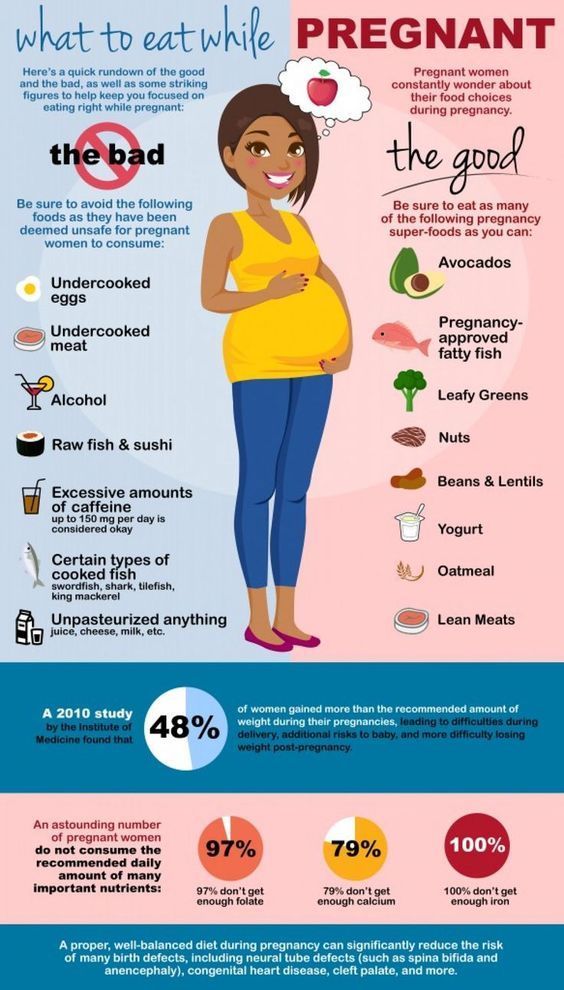 The best way to keep from eating junk food or other unhealthy snacks is to not have these foods in your house.
The best way to keep from eating junk food or other unhealthy snacks is to not have these foods in your house. - Go light on fats. Fats include cooking oils, margarine, butter, gravy, sauces, mayonnaise, regular salad dressings, lard, sour cream, and cream cheese. Try the lower-fat versions of these foods.
Eating out:
- Knowing the amount of calories, fat, and salt in your food can help you eat healthier.
- Most restaurants have menus and nutrition facts on their websites. Use these to plan ahead.
- In general, eat at places that offer salads, soups, and vegetables.
- Avoid fast food.
Cooking at home:
- Prepare meals using low-fat cooking methods.
- Avoid fried foods. Frying foods in oil or butter will increase the calories and fat of the meal.
- Baking, broiling, grilling, and boiling are healthier, lower-fat methods of cooking.
Exercise:
- Moderate exercise, as recommended by your provider, can help burn extra calories.

- Walking and swimming are generally safe, effective exercises for pregnant women.
- Be sure to talk to your provider before starting an exercise program.
If you have struggled with your weight in the past, it may be hard to accept that it is OK to gain weight now. It is normal to feel anxious as the numbers on the scale edge up.
Keep in mind that you need to gain weight for a healthy pregnancy. The extra pounds will come off after you have had your baby. However, if you gain a lot more weight than is recommended, your baby will also be bigger. That can sometimes lead to problems with delivery. A healthy diet and regular exercise are your best ways to ensure a healthy pregnancy and baby.
Prenatal care - managing your weight
Berger DS, West EH. Nutrition during pregnancy. In: Landon MB, Galan HL, Jauniaux ERM, et al, eds. Gabbe’s Obstetrics: Normal and Problem Pregnancies. 8th ed. Philadelphia, PA: Elsevier; 2021:chap 6.
Bodnar LM, Himes KP. Maternal nutrition. In: Resnik R, Lockwood CJ, Moore TR, Greene MF, Copel JA, Silver RM, eds. Creasy and Resnik's Maternal-Fetal Medicine: Principles and Practice. 8th ed. Philadelphia, PA: Elsevier; 2019:chap 12.
Maternal nutrition. In: Resnik R, Lockwood CJ, Moore TR, Greene MF, Copel JA, Silver RM, eds. Creasy and Resnik's Maternal-Fetal Medicine: Principles and Practice. 8th ed. Philadelphia, PA: Elsevier; 2019:chap 12.
Updated by: John D. Jacobson, MD, Professor of Obstetrics and Gynecology, Loma Linda University School of Medicine, Loma Linda Center for Fertility, Loma Linda, CA. Also reviewed by David Zieve, MD, MHA, Medical Director, Brenda Conaway, Editorial Director, and the A.D.A.M. Editorial team.
Browse the Encyclopedia
Weight category - articles from the specialists of the clinic "Mother and Child"
— What norms of weight gain during pregnancy are doctors guided by today?
- The average increase for all nine months is from 9 to 14 kg. The exact figure depends on many factors, but a sharp deviation in one direction or the other from the norm should be alarming. To calculate the allowable increase, the initial weight of the expectant mother should be taken into account: for example, women of a fragile physique (asthenic type) must gain more than initially obese women. In addition, it is important to consider the trimester of pregnancy. nine0005
In addition, it is important to consider the trimester of pregnancy. nine0005
— How does weight change in different trimesters?
- Weight gain throughout pregnancy is uneven: at the very beginning it is almost imperceptible, increases significantly towards the middle and may begin to decrease two weeks before delivery. In the first trimester, both weight gain and weight loss are considered normal. On average, during this period, the expectant mother is gaining from 1.5 to 2.5 kg. In the second trimester, the baby begins to grow actively and the numbers will be different: about 500 g per week for thin women, no more than 450 g for pregnant women with normal weight and no more than 300 g for full ones. In the third trimester, the weight of the expectant mother should not increase by more than 300 g per week.
— Why do pregnant women gain weight?
- Contrary to popular belief, weight gain is not only due to the mass of a growing baby and body fat - they make up about half of the total figure. For nine months, a woman's uterus increases, the volume of circulating blood and intercellular fluid increases, amniotic fluid and the placenta form.
For nine months, a woman's uterus increases, the volume of circulating blood and intercellular fluid increases, amniotic fluid and the placenta form.
— Why is excess weight dangerous?
- Rapid weight gain is typical for multiple pregnancies, underweight women and too young mothers whose bodies are still developing. Often it is the result of normal overeating and requires adjustment of the diet. Diets and fasting days (especially the so-called "hungry") during the period of bearing a child are strictly prohibited even if the pregnant woman is overweight. It is very important to ensure that the baby receives all the nutrients, vitamins and trace elements, so you just need to balance your diet accordingly. nine0005
Excess weight may occur due to fluid retention, which manifests itself in the form of edema. By the way, this is especially true for working pregnant women: sedentary work provokes stagnation of fluid in the lower extremities and pathological weight gain. In this case, wearing compression stockings, leg exercises and regular walking is recommended.
In this case, wearing compression stockings, leg exercises and regular walking is recommended.
— Is slow weight gain dangerous, on the contrary?
- Some expectant mothers gain the first kilograms only after the 14th week - usually for petite women who do not have a genetic predisposition to be overweight or women suffering from toxicosis. In the first case, weight gains slowly throughout all nine months, which, if the pregnant woman feels normal, should not cause concern. If we talk about early toxicosis, then by the second trimester the malaise usually disappears, body weight returns to normal and weight gain goes on as usual. nine0005
Pregnancy weight gain - What is BMI?
- Contents
Every woman gains a certain amount of weight during pregnancy. But in this case, it cannot be called superfluous, since each kilogram appears for a reason. You should not be afraid of such weight gain, because often after childbirth, most women manage to quickly return to their usual form.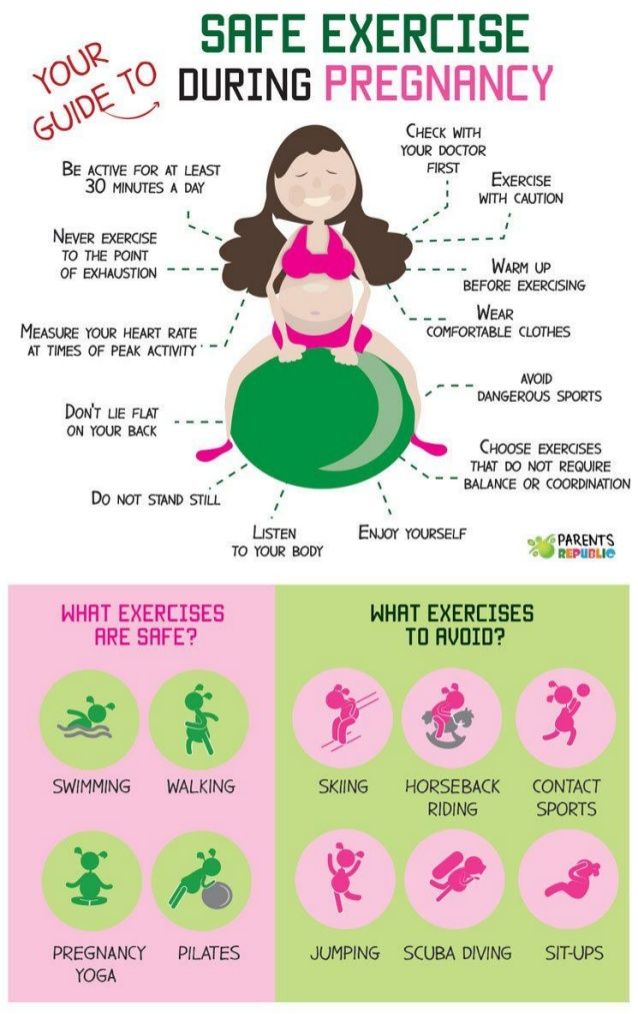 However, one should not “launch” oneself either - too rapid weight gain at each stage of pregnancy can have negative consequences. Everything should be in moderation, and in order to control it, you need to know in advance what should be the rate of weight gain during pregnancy. nine0005
However, one should not “launch” oneself either - too rapid weight gain at each stage of pregnancy can have negative consequences. Everything should be in moderation, and in order to control it, you need to know in advance what should be the rate of weight gain during pregnancy. nine0005
What is the normal weight gain during pregnancy?
This indicator is individual. Some gain only 5-6 kg, feeling fine, having no problems with bearing a child. There are those who gain more than 20 kg, also without complaints and complications. However, in most cases, the rate of weight gain during pregnancy is average between these values - 9-14 kg when carrying one child and 16-21 kg if the pregnancy is multiple.
It is also important to remember that during the first trimester a pregnant woman may not notice weight gain. Firstly, the fetus is just being formed, and it is too early to talk about its growth. Secondly, many during this period have severe toxicosis, accompanied by a deterioration in appetite and vomiting. As a result of such conditions, a woman can, on the contrary, lose a couple of kilograms. Starting from the second trimester, weight gain becomes more noticeable. Usually it is about 1 kg per month. The sharpest jump can be seen in recent months - then a woman can recover more than 400 g per week. nine0005
As a result of such conditions, a woman can, on the contrary, lose a couple of kilograms. Starting from the second trimester, weight gain becomes more noticeable. Usually it is about 1 kg per month. The sharpest jump can be seen in recent months - then a woman can recover more than 400 g per week. nine0005
It should be borne in mind that these are only generalized data, and they should not be taken as a rigid norm of weight gain during pregnancy. Only a doctor can determine whether this or that weight gain is acceptable for a woman and her fetus. This is especially true in cases where a pregnant woman has concomitant health problems, or she bears more than three children.
What increases the weight of a pregnant woman?
So that a pregnant woman is not afraid of the fact that she is gaining kilograms, she needs to understand where they come from. nine0054 The main sources of weight gain are:
- Fetal weight. The child in the womb is getting bigger every day, respectively, this affects the weight indicator, adding up to 3-4 kg.

- Enlarged uterus and amniotic fluid. Usually, at their expense, a pregnant woman gains up to 2 kg before giving birth.
- Increased blood volume in the body. This indicator can vary greatly, but usually about 1.5 kg is assigned to it.
- The appearance of additional fluid in the body. Its weight can be from 1.5 to 3 kg. nine0039
Do not forget that in the last weeks before childbirth, a woman's mammary glands begin to increase - milk accumulates in them. This process increases the total weight by about 0.5 kg.
Regardless of how a woman eats during pregnancy, avoiding the accumulation of body fat is extremely rare. The norm can be considered a situation when their weight does not exceed 3-4 kg. This indicator can be considered the most unstable. If a woman was actively involved in sports before pregnancy, she may gain less. If a pregnant woman allows herself to eat too much, or takes hormonal drugs to preserve the fetus, this can lead to a significant increase in this indicator. nine0005
nine0005
What factors influence weight gain during pregnancy?
Although the sources of weight gain are clearly identified, there are internal and external factors that can affect the amount of weight gained.
The main ones are:
- Initial weight of a woman. Of course, this factor cannot be considered decisive, but it shows that usually thin women gain more extra pounds during pregnancy than obese women.
- Growth of a pregnant woman. Tall women tend to gain more kg. nine0039
- Tendency to be overweight. If a woman has such a predisposition, she needs to be especially careful, because during pregnancy she can gain a lot of extra pounds.
- Great increase in appetite. This factor is not common to everyone, but to the majority. Feeling a sharp increase in appetite, women can succumb to it, or vice versa - try to restrain themselves, controlling weight gain in themselves and in the fetus.
- The presence of toxicosis.
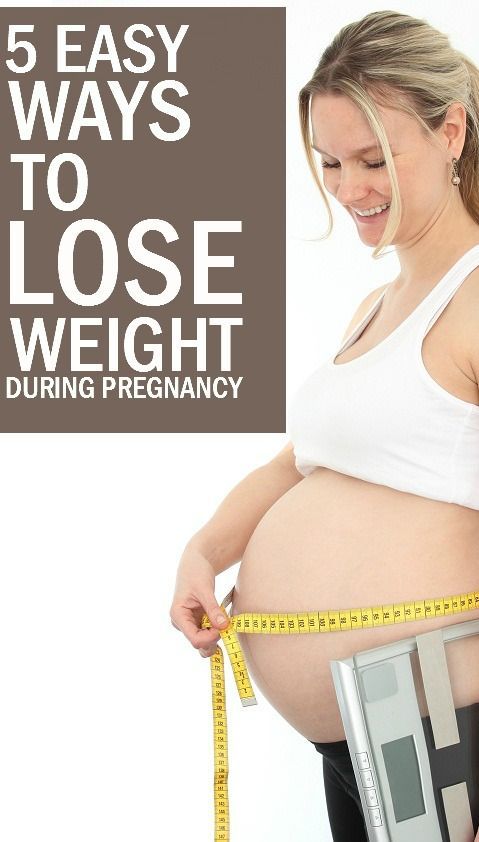 If such conditions are frequent and severe, it can lead to weight loss, which is highly undesirable during pregnancy. nine0039
If such conditions are frequent and severe, it can lead to weight loss, which is highly undesirable during pregnancy. nine0039 - Presence of comorbidities, such as diabetes mellitus. In this case, a violation of metabolic processes is possible, which will cause weight gain.
It is worth remembering that age can also affect the rate of weight gain. The older a woman is, the more difficult it is for her to control her weight gain during pregnancy. Therefore, for those who give birth in adulthood, it is important to pay special attention to this issue.
BMI when calculating weight gain
BMI is one of the basic concepts, using which you can control the process of weight gain during pregnancy. This indicator is calculated quite simply - according to the formula: the usual weight of a person must be divided by his height (m) squared.
The resulting figure can be attributed to 3 types of figures:
- up to 19.8 (group 1) - the thinnest women
- 19.
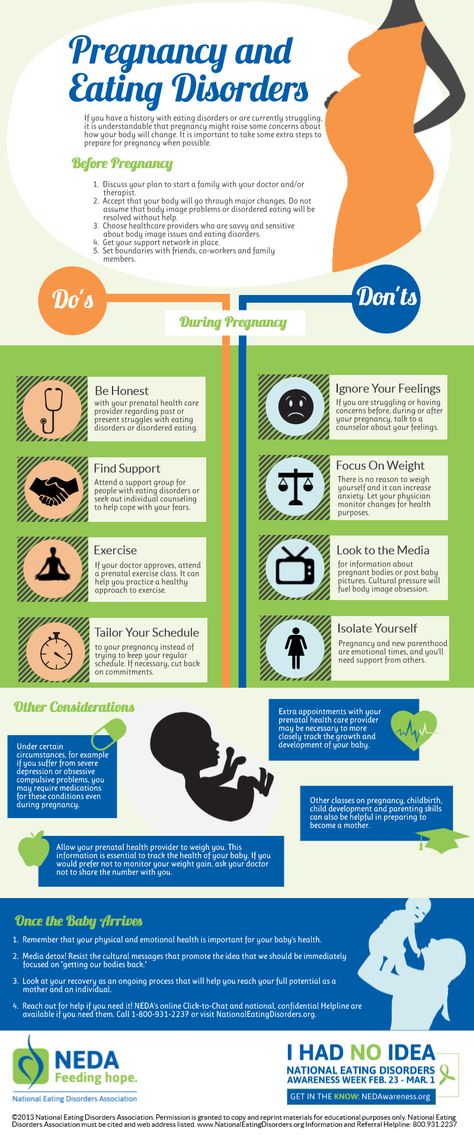 8-26 (group 2) - women with an average build
8-26 (group 2) - women with an average build - from 26 (group 3) - obese women
For example
With a height of 1.75 m, a woman weighs 65 kg.
1.75*1.75≈3.
65:3=21.6
It is the body mass index that is used in calculating the rate of weight gain during pregnancy by trimester or week. The easiest way to do this is to use a weight gain calculator.
Risk of being underweight during pregnancy
Severe weight loss during pregnancy or simply lack of body weight can adversely affect the health of both the woman and the child. nine0054 Possible risks are:
- premature birth, which can be very dangerous for both mother and child
- too low birth weight, which can cause health problems
- asthenia and slow weight gain of the baby in the first months after birth
To exclude the possibility of such unpleasant situations, it is important to notice the underweight in time and determine its cause.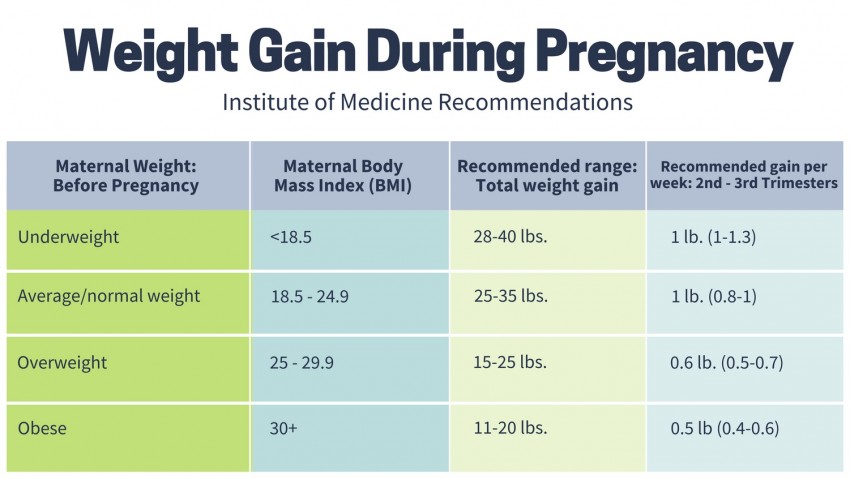 It may consist in malnutrition, severe toxicosis, etc. Usually, such conditions can be successfully corrected by taking special medications or diets. nine0005
It may consist in malnutrition, severe toxicosis, etc. Usually, such conditions can be successfully corrected by taking special medications or diets. nine0005
Why is too rapid weight gain during pregnancy dangerous?
Rapid weight gain during pregnancy, as well as its reduction, is fraught with the following pathologies:
- development of gestational diabetes mellitus
- increased blood pressure
- risk of preeclampsia - severe deterioration of the pregnant woman in the last weeks before delivery
- persistent headaches
- premature aging of the placenta
- metabolic disorder
It is important to remember that if the future mother recovers sharply, the same happens to the fetus. Its large weight can complicate the process of natural childbirth, because of which you will have to do a caesarean. It also increases the risk of preterm birth with complications.
How to maintain a correct BMI during pregnancy: nutritional advice
No matter how fast a woman gains weight during pregnancy, it is important for her to follow a healthy diet.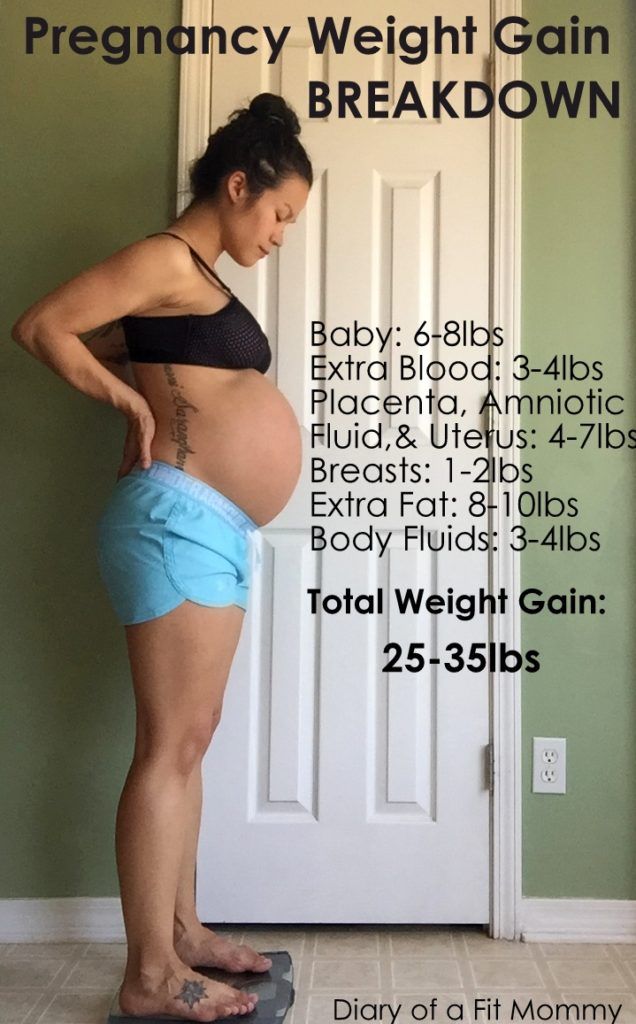 In addition to the ability to maintain normal weight, it will also help maintain the health of the pregnant woman and the child. nine0054 The following recommendations can be considered universal:
In addition to the ability to maintain normal weight, it will also help maintain the health of the pregnant woman and the child. nine0054 The following recommendations can be considered universal:
- Exclusion from the diet of a large number of sweet foods, primarily flour.
- The use of fermented milk products in sufficient quantities (they will help improve metabolic processes).
- Select foods that contain folic acid. If this is not possible, you can take the appropriate drugs.
- Refusal of fatty, fried and smoked foods - such food can not only cause weight gain, but also negatively affect the health of the fetus, as it worsens the quality of the blood. nine0039
- Emphasis on fresh fruits and vegetables - they will improve digestion, provide the bodies of a pregnant woman and a child with the necessary vitamins.
It is also important to ensure that the diet is balanced in terms of proteins, fats and carbohydrates.












